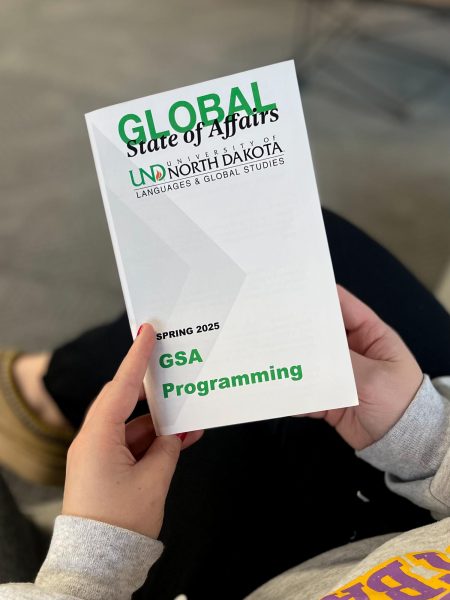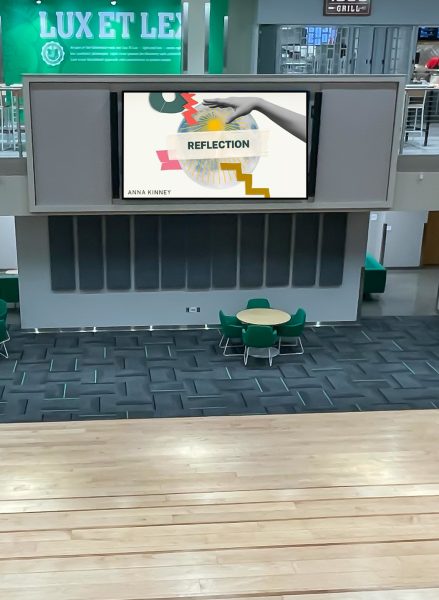Bird-feeding professor comes forward
Germany native has been watching over UND bird population for 20 years
Students may have noticed birds chirping and munching on bird seed outside the Memorial Union. Keeping this bird community well-fed is chemistry professor Lothar Stahl.
Stahl grew up in Germany and moved to the United States when he was 21 years old. He has been teaching at UND and feeding the birds in the Grand Forks community for 20 years.
“I used to feed birds in Germany, and when I came here 20 years ago, I noticed it was very cold and hard for the birds to survive here,” Stahl said. “Very few people in Grand Forks have bird feeders.”
Between Stahl’s home near 13th Avenue South and campus, he has about six or seven drop off stations at which he leaves bird seed.
“Its been a habit where I put the bird seed out,” Stahl said. “It would be nice if the university would put up feeders so I could just put the seed in those, but the birds on campus sit in the warm areas and so those are the spots where I put the seeds.”
During winter, there are large flocks of sparrows and a few solitary birds like chickadees, nuthatches, finches, blue jays and crows in Grand Forks.
“Birds are pretty picky,” Stahl said. “Most of the birds I feed are sparrows, so they like millet, and the chickadees and nuthatches like the bigger seeds like black sunflower, and crows and blue jays like peanuts. They are pretty selective.”
Bird seed has gotten more expensive since Stahl started supplying it to the birds 20 years ago.
“In the winter is costs me about $60 a week to feed the birds, so I’d say about $250 a month,” Stahl said.
Stahl doesn’t see himself as much of a birdwatcher due to his lack of free time, but he feeds the birds to help them get through the sub-zero Grand Forks winters.
“I see them suffer, so I just want to help them out,” Stahl said. “During bad winters, like the one we just had, about 80 percent of the birds get killed because of the cold. It’s pretty rough, so that’s why I like to put the seed out. After a while, of course, you’re kind of committed, because they’re going to wait for the seed.”
Unfortunately, UND has had to cut down many trees and bushes on campus which act as natural shelter for the birds.
“You can’t just put the seed out in the open because they want shelter where they have some protection from predators and from the weather,” Stahl said. “Birds are kind of weary, so you can’t just put it out right in the open.”
Stahl doesn’t do this selfless act for just anyone.
“I do it just for the birds,” he said. “I do get something out of it, because I’m helping the birds, and I feel we should all do something outside of ourselves that you do for no particular purpose that doesn’t necessarily help you directly, but maybe helps society or, in my case, the birds.”
Adele Kieger is a staff writer for The Dakota Student. She can be reached at [email protected].






